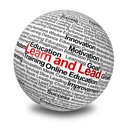June Wall and Karen Bonanno provide an introduction to the research base behind the need for students and teachers to develop new learning skills, formerly known as 21st century learning skills. An outcome of this research has been the recognition of the need for teachers to upskill in these new areas. It presents the argument for, and research about, the new skills. It will be followed up with a second article on how a capacity building toolkit may be implemented in schools.
You can read the article here: Learning and literacy for the future in Scan, Volume 33, Issue 3, pp. 20-28.
Introduction:
The Young Adult Literacy Services Association forum report (YALSA), The future of library services for and with teens: a call to action. (Braun et al., 2014), indicates that success for today’s teens in an increasingly global and competitive society will depend on having a set of skills that goes beyond traditional academic skills. The report states the expanded set of skills ‘includes learning and innovation skills (i.e. creativity and innovation, critical thinking and problem solving, communication and collaboration), and information, media and technology skills (i.e. information literacy, media literacy, digital literacy, and ICT literacy)’(Braun et al., p. 3). There is a concern that young people entering the workforce do not have this skill set.

